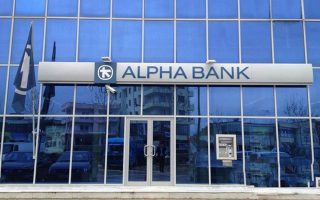Intrum and doValue expand in Greek NPLs

Greece constitutes a magnet for Europe’s major bad-loan management companies, as it has the fourth largest stock of nonperforming loans.
Based on January-March 2020 data, the sum of Greek NPLs came to 61 billion euros, amounting to 30% of all Greek loans – compared to an average rate of just 3% in the European Union.
The high stock of bad loans serves to explain the activation in the Greek market of two of Europe’s three biggest NPL management companies, Sweden’s Intrum and Italy’s doValue, whose prospects are analyzed in a recent report by JP Morgan Cazenove. The latter notes that, after a period of stagnation, the supply of bad loans is expected to increase in the European market, as according to data by Intrum the provisions for loan losses by European banks increased by €120 billion in the year’s first quarter from the same time in 2019.
The Italian group, which recently completed the acquisition of bad-loan management company FPS from the Eurobank Group, is also active in Italy, Spain, Portugal and Cyprus. JP Morgan Cazenove comments that the acquisition of FPS will strengthen the doValue’s revenues by 17% in 2020 and by 12% in 2021.
Intrum is present in 25 countries across Europe, in most cases being the dominant market player. After its agreement with the Piraeus Group for the management of the lender’s bad loans, it constitutes one of the top two servicers in Greece.
According to JP Morgan Cazenove, the Swedish group, which is among the biggest investors through portfolio acquisitions, has a balanced exposure in the market of debt servicing too. The variety of its mix across various market categories, its comparatively low dependence on justice systems and the property markets of the countries it is active in, and its automized loan retrieval systems reduce the shock risks from any further lockdowns.
However, despite the positive outlook for new NPLs, Intrum is trying to reduce its pace of investments so as to reduce its leveraging, which is the sector’s highest. This, according to JP Morgan Cazenove, will likely slow down the Swedish company’s investments, and therefore the growth of its profits in the future.





